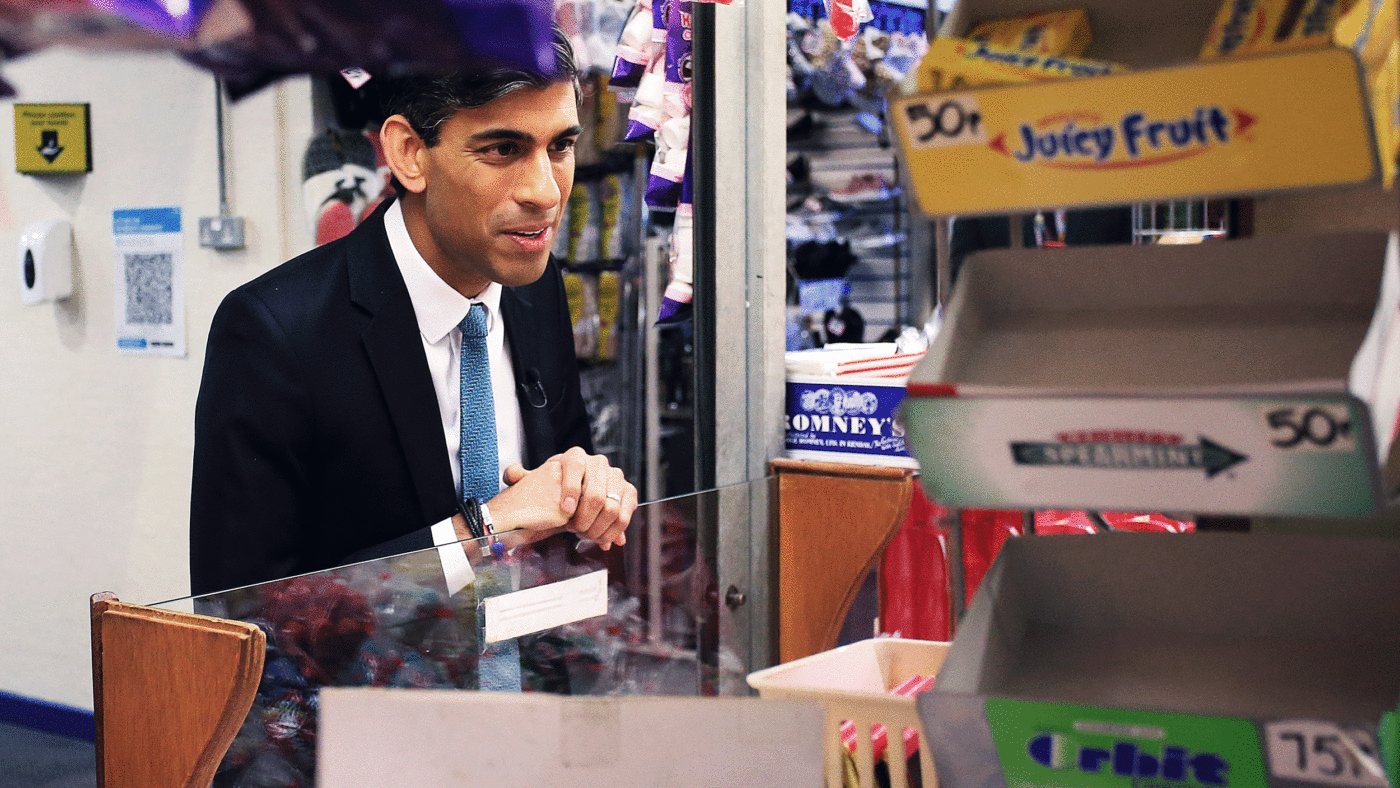‘My goal is to reduce taxes,’ said Chancellor Rishi Sunak during Wednesday’s Budget.
And, in fairness, he did announce a cut to domestic Air Passenger Duty, freezes in fuel and alcohol duties, and a variety of welcome business rates reliefs. People will argue about whether the Chancellor’s ‘rabbit out of the hat’ – an 8p cut in the Universal Credit taper – is a tax cut or a benefit increase. But either way, it’s a good policy that will reduce effective marginal rates for the least well-off workers.
Yet for all that, there’s a bigger picture here that is hard to ignore: the overall impact of policy decisions taken at this Budget and the last one will increase taxes by £25bn a year in 2023, rising to £44bn in 2025. These are the biggest tax increases in a generation, and mean that Britain is on course to face its highest tax burden since the post-war period.
For a chancellor known to idolise tax-cutting Thatcherite Nigel Lawson, that must be uncomfortable terrain. In his speech to the House of Commons, Sunak offered some clarification: ‘By the end of this Parliament, I want taxes to be going down not up’. He went further in a subsequent address to Tory MPs, telling them that ‘every marginal pound we have should be put into lowering people’s taxes’. The plan, then, is fairly clear: let’s get the nasty stuff out of the way now and buy ourselves room for tax cuts before the next election.
Some people will say that’s cynical politics, putting the electoral cycle ahead of the macroeconomic one. And Britain certainly looks like an outlier here – neither the United States nor our European neighbours are tightening fiscal policy like we are.
But I’m not so sure. Sunak is a sincere and principled politician (not necessarily a contradiction in terms). He and his Treasury team genuinely worry about deficits and debt, and believe in prioritising fiscal responsibility. The most charitable interpretation of the Chancellor’s tax today, cut tomorrow approach is probably the correct one.
It is, however, a very risky strategy. For one thing, once you dig into the Budget numbers, it is clear that the Government is walking a fiscal tightrope. Sticking to the new fiscal rules – even after big tax increases on individual earnings and corporate profits take effect – is going to depend very heavily on GDP growth. In turn, that relies on some rather bullish projects for productivity, which is expected to grow at almost twice the average quarterly rate as in the decade following the financial crisis. Maybe the OBR has it right this time, but it is hard to forget how many times they have been wrong before.
If there were a coherent plan to boost productivity, that would be one thing. But the Budget was noticeably light on the kind of supply-side reforms you would need to lift productivity growth in the short to medium term. The Chancellor’s ‘real plan for growth’ – government funding for innovation, infrastructure, and skills – could have some impact over a longer time horizon, but even then you have to wonder how different this is to all the other government-directed programmes that have been tried before.
On top of all this, business is facing a corporation tax cliff edge of the Chancellor’s own making. In April 2023, the headline rate will go from 19% to 25%, the super-deduction for capital investment will expire, and the Annual Investment Allowance will fall from £1m to £200,000. Overnight, we’ll go from having the most attractive corporate tax regime of any major economy, to having one of the least competitive offers in the OECD. This is bound to be a drag on growth, and is probably already deterring investment.
What I’m getting at here is that the government is relying on the ‘proceeds of growth’ to stay within its fiscal rules. The Chancellor is hoping for an even better outturn so that he can afford to cut taxes – ‘every marginal pound’ should be put to that purpose. Yet there isn’t a concerted effort across government to make that growth happen. Tax policy is clearly pushing in the opposite direction for now, and vital supply side reforms (like planning liberalisation) seem to be going nowhere fast. The government is putting a lot of eggs in its ‘better regulation’ basket, but surely that can’t be expected to do all the heavy lifting?
If growth disappoints – if those marginal pounds never materialise – then Rishi Sunak risks being an instinctively low tax, small state chancellor who nevertheless presides over a high tax, trillion pound state. Who promises jam tomorrow, but never manages to deliver jam today. Ultimately, when it comes to tax cuts, there really is no time like the present.
Click here to subscribe to our daily briefing – the best pieces from CapX and across the web.
CapX depends on the generosity of its readers. If you value what we do, please consider making a donation.


